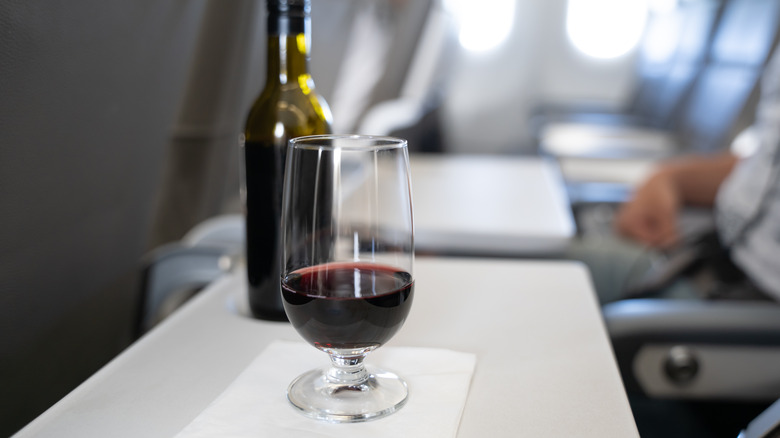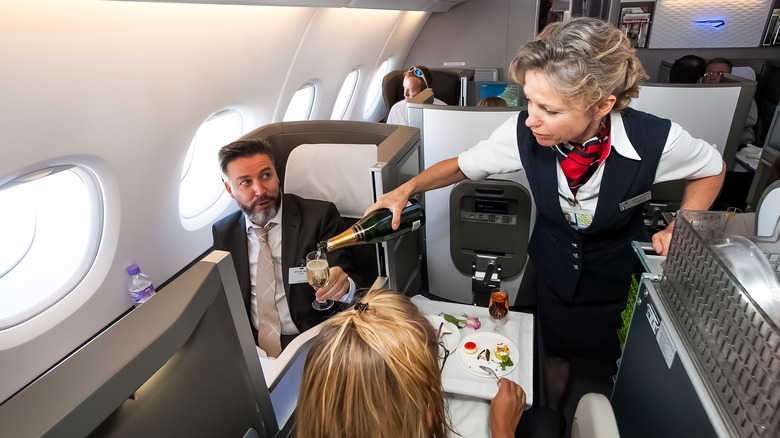Why Wine May Taste Worse When Flying On An Airplane
If you think choosing wine at a fine-dining restaurant is intimidating, just imagine the challenges an airline sommelier faces in the process of selecting wines to satisfy the sometimes-demanding palates of a carrier's premium-class passengers. It's anything but a slam-dunk for even the most experienced wine experts because wines that tick all the boxes on the ground may taste completely different at a cruising altitude.
According to AeroCorner, air inside an aircraft in flight is significantly dryer than air at ground level, which comes down to how the plane's air filtration system works. The systems are designed to pull air from outside the plane and circulate it through the cabin. Air is less humid at altitude, so the cabin air gradually loses its moisture. In general, humans are comfortable in an atmosphere containing 30% to 65% humidity. Meanwhile, aircraft cabin air is closer to 20% to 30% humidity.
What does all this have to do with in-flight wine? Dry air can impact the human body through dry skin, sticky eyes, or chapped lips during a long flight. Lack of humidity also affects our ability to taste and smell — the two senses we need to appreciate the nuances of wine. According to Forbes, taste buds detect flavor profiles and scent is processed when vapors travel through our sinuses to reach the olfactory epithelium where we register smell.
When taste and smell are out of sync, it diminishes our capacity to taste wine.
What's the solution?
To get it right, airline wine experts select wines at ground level, but taste them at altitude before adding them to in-flight wine lists. Andrea Robinson, a master sommelier who curates Delta Air Lines' in-flight wine list, told Insider in 2015, "Your senses are dulled at altitude, making it difficult to appreciate the complex scents and flavors wine has to offer." She also said, "The lower atmospheric pressure — versus tasting on land — means those flavor molecules are jetting past your sensory receptors so fast, you miss a lot."
Commenting on how altitude-compromised senses affect our ability to taste wine, Robinson explained wines experienced in-flight taste more acidic, adding "strong, gritty tannins don't show as well. Whites with a tart flavor profile also aren't as appealing at altitude as more opulent styles."
It's a tricky proposition. To compensate, Insider says sommeliers charged with selecting wine for in-flight consumption are usually looking for non-acidic, fruity wines that are low in tannins. (Tannins are the compounds in grapes that determine how dry a wine is, per VinePair.)
Liam Steevenson, a UK-based wine expert who worked with England's now-defunct all-business-class airline, Silverjet, to develop the carrier's wine list, concurs. In 2015, Steevenson told BBC, "Wines that on the ground taste quite fruity, suddenly taste thin, tannic and acidic. Wines certainly thin out and become much leaner and more structured. Liquids expand and contract according to atmospheric pressure and therefore perhaps this is what is happening to the wine."

